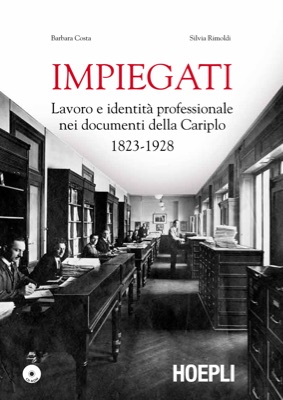
Impiegati
Barbara Costa, Silvia Rimoldi Milano, Hoepli, 2012
In this guide, the Historical Archives place the focus on ‘personnel files’, the administrative documents produced and stored by a business which, over time, become essential historical sources for understanding how employment has evolved in the banking sector and beyond.
At the heart of the book lies an inventory of papers kept in the archives of Cassa di Risparmio delle Provincie Lombarde (Cariplo), open to consultation by academics: not only personnel files, but also different types of documents – including a large number of photographs – which widen the prospects for historical and archive-related study.
These sources offer an extraordinary, long-ranging insight into the middle classes working in Milan from the time of the European Restauration to the early years of Fascism, a bourgeoisie made up of employees and officials – considered a privileged elite – which strove to become upwardly mobile from the late 19th century onwards.
Matters of employment history as well as social and corporate history emerge from the documents. We discover that the history of the bank’s personnel not only intertwines with that of the organisation itself, explaining and mirroring its changing structure, but also with the vicissitudes of the entire country: the wars of independence, in which many employees participated; the First World War, fought by 274 Cariplo staff members, almost half of the permanent workforce; the strikes of the 1920s and the advent of Fascism.